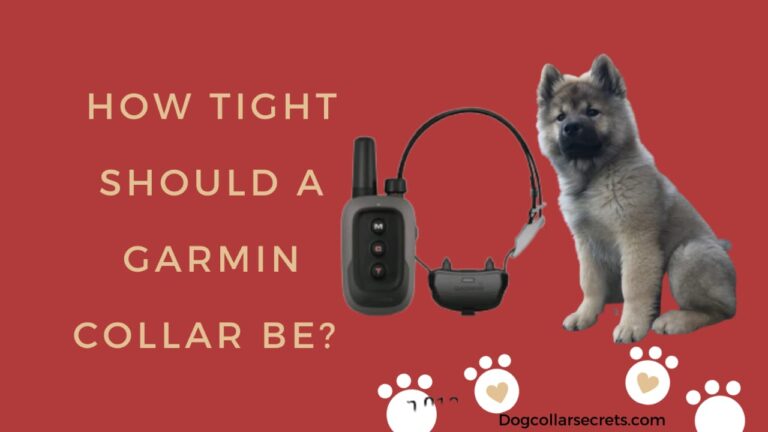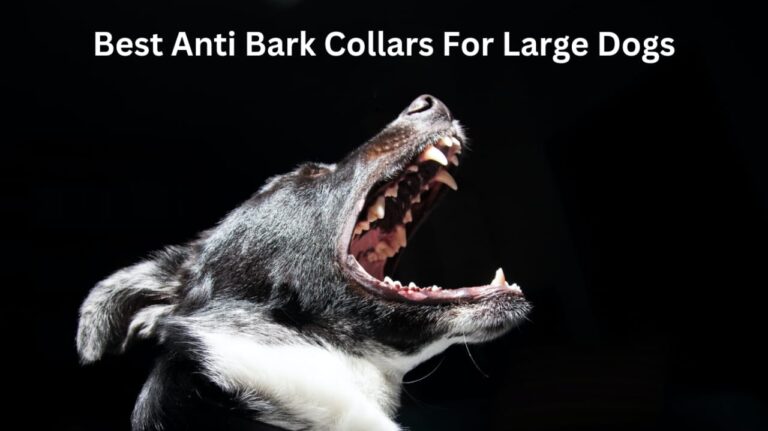Do vets recommend bark collars? Dog Collar Guide

Do vets recommend bark collars?
If you want to know the answer to this question “Do vets recommend bark collars?” Then the answer is Yes, some vets recommend bark collars, while others do not.
Bark collars are devices designed to control a dog’s barking behavior. They emit sounds, vibrations, or mild electric stimuli when a dog barks. Vets have mixed opinions about these collars. Some believe they can effectively curb excessive barking, which can disturb the dog’s owners and neighbors. However, other vets express concerns about potential negative effects on a dog’s well-being. They worry that these collars might cause stress, fear, or even pain to dogs, impacting their mental and emotional health.
Vets usually consider alternative training methods, such as positive reinforcement and behavior modification, as safer and more humane options to address barking problems. Always consult with a veterinarian before using any training tools on your dog.
Do vets recommend bark collars? Let’s explore
Bark collars have become a topic of discussion among dog owners seeking effective solutions to control excessive barking. These devices are designed to discourage dogs from barking by emitting sounds, vibrations, or mild electric stimuli. However, whether veterinarians recommend bark collars remains a subject of debate within the veterinary community.
Pros and Cons of Bark Collars
Some vets suggest that bark collars can be useful in specific cases. They believe that these collars might help deter incessant barking, which can create disturbances for both the dog’s owners and neighbors. In scenarios where other training methods have failed, a bark collar could potentially provide a temporary solution to manage the behavior.
On the flip side, many veterinarians express concerns about the potential negative consequences of using bark collars. They worry that the collars may cause stress, anxiety, and fear in dogs due to the sudden stimuli. There’s also the risk of physical discomfort or pain, which could potentially harm the dog’s overall well-being and trust in its owner. Critics argue that these collars might suppress barking without addressing the underlying reasons for the behavior, such as anxiety or boredom.

Are Bark Collars Recommended by Vets?
Veterinarians usually prefer positive reinforcement, which means rewarding good behavior in dogs. However, if a dog keeps barking excessively and positive reinforcement isn’t enough, vets might suggest using a bark collar. These collars, also known as anti-bark or no-bark collars, provide a gentle response like vibrations or mild static correction when the dog barks. It’s important to use them carefully and with the guidance of a vet. While positive reinforcement remains the main focus, bark collars can be a helpful additional tool to teach dogs when it’s not okay to bark too much.
Safer Alternatives and Behavior Modification
Veterinarians who discourage the use of bark collars often recommend alternative training methods that prioritize positive reinforcement and behavior modification. These approaches focus on understanding the root causes of excessive barking and addressing them through patient and humane training techniques.
Positive reinforcement involves rewarding the dog for desired behaviors, such as staying calm when faced with triggers that normally prompt barking. Behavior modification techniques aim to change the dog’s response to stimuli that lead to barking, gradually reducing the urge to bark excessively.
Consultation with a Veterinarian
Before considering the use of a bark collar or any training tool, it’s crucial to consult a veterinarian. Every dog is unique, and what works for one dog might not be suitable for another. A veterinarian can assess the dog’s behavior, health, and individual needs to provide personalized recommendations.
Vet recommended bark collar for large dogs
When it comes to addressing excessive barking in large dogs, a vet-recommended solution is often sought after. One effective tool that veterinarians may suggest is a bark collar designed specifically for larger breeds. These specialized bark collars are crafted to provide a humane and safe method for curbing excessive barking tendencies in your beloved pet.
Dog owners often turn to bark collars as a targeted approach to training. These anti-bark collars, also known as no-bark collars, are equipped with features designed to discourage incessant barking without causing harm to the dog. For large dogs, it’s crucial to choose a bark collar that is both robust and appropriately sized to ensure comfort and effectiveness. These collars emit signals, such as vibrations or mild static stimulation, in response to barking, creating an association that helps the dog understand when excessive barking is unwarranted.
When exploring the market for bark collars for big dogs, it’s essential to consider the specific needs of your pet. Look for features like adjustable settings, durable materials, and a comfortable fit. Some dog bark collars for large dogs come with multiple sensitivity levels, allowing you to tailor the training to your dog’s unique temperament. Always consult with your veterinarian before introducing any training tool, including bark collars, to ensure that it aligns with your dog’s well-being and behavioral needs. Remember, a vet-recommended bark collar can be a valuable aid in fostering a quieter and more harmonious living environment for both you and your cherished canine companion.

Conclusion
In conclusion, the question of whether or not vets recommend bark collars. does not have a definitive answer. Some vets believe they can be effective in specific cases, while others advocate for alternative, more humane training methods. Ultimately, the well-being of the dog should be the top priority, and any training approach chosen should align with the dog’s temperament and specific needs.
You may also like this: How Many Inches Is A Large Dog Collar?
Can You Leave A Bark Collar On All Night?
How Long Does A Bark Collar Last?
Certainly! Here are four frequently asked questions (FAQs) about bark collars and veterinarians’ recommendations:
FAQ
Are Bark Collars Recommended by Vets?
Veterinarians have varying opinions on dog bark collars, including anti-bark or no-bark collars. Some vets consider them as a useful tool in specific situations where excessive barking poses challenges to positive reinforcement training alone. These collars can provide a controlled response to barking through gentle stimuli like vibrations or mild static correction. However, it’s crucial to note that not all vets endorse the use of bark collars, and opinions may differ. Some emphasize that these collars should be used cautiously, under professional guidance, and as part of a broader training approach that includes positive reinforcement.
In general, veterinarians recommend a comprehensive understanding of a dog’s behavior and the underlying reasons for excessive barking before considering the use of bark collars. It’s essential to prioritize the dog’s well-being and consult with a vet to determine if a bark collar is a suitable and humane option for addressing specific behavioral issues.
Are bark collars recommended by veterinarians?
Opinions among veterinarians vary. Some may suggest using bark collars as a last resort for dogs with excessive barking issues, while others prefer positive reinforcement-based training methods. It’s advisable to consult your vet and explore alternatives before considering bark collars.
If the use of a bark collar is deemed appropriate, veterinarians often emphasize the importance of choosing a collar that is humane, properly fitted, and used responsibly. Understanding the specific needs and temperament of your dog is key, and a collaborative approach with your veterinarian ensures that any training tool, including bark collars, aligns with your pet’s well-being.
Why might a veterinarian recommend a bark collar?
In certain cases, veterinarians might recommend bark collars when traditional training methods have failed and excessive barking poses a problem. However, they often emphasize using humane and positive reinforcement-based techniques first.
Positive reinforcement involves rewarding good behavior and fostering a healthy relationship between the owner and the dog. Bark collars are considered as a supplementary tool, particularly when other methods haven’t yielded the desired results. It’s crucial to consult with your vet to determine if a bark collar is appropriate for your dog’s specific situation and to ensure its responsible use, taking into account factors such as proper fit, comfort, and the overall well-being of the pet.
What concerns do some veterinarians have about bark collars?
Many vets are concerned that bark collars can cause stress, fear, or anxiety in dogs due to the aversive stimuli they deliver. These collars might not address the underlying cause of barking and can potentially lead to unintended behavioral consequences.
Additionally, there is a risk that the use of bark collars may create an association between the collar and fear, which can undermine the trust and bond between the owner and the dog. It’s essential for pet owners to be aware of these concerns and to consult with their veterinarians to explore alternative training methods that prioritize the well-being and emotional health of their furry companions.
What alternatives do veterinarians suggest for barking issues?
Veterinarians generally suggest positive reinforcement training, behavior modification, and addressing any potential underlying medical or psychological issues. Engaging in professional dog training classes and consulting with a certified animal behaviorist are often recommended approaches.
Remember that it’s essential to have an open discussion with your veterinarian to determine the most suitable and compassionate approach for addressing your dog’s barking behavior.





